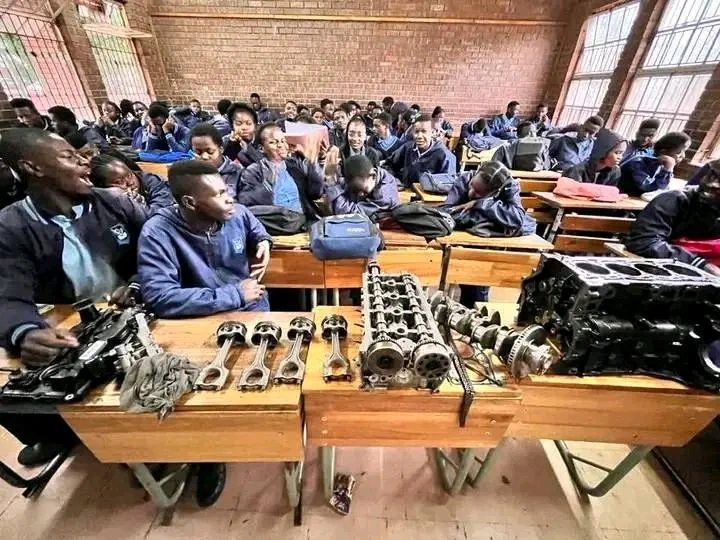
Like many countries, Nigeria’s education system is designed to provide citizens with the skills and knowledge necessary to contribute meaningfully to national development. From primary to tertiary levels, the country has made various efforts to improve access, quality, and relevance. These efforts have included interventions in infrastructure, curriculum reform, and occasional financial support to students. Despite these interventions, Nigeria’s education sector continues to evoke mixed reactions among citizens and observers, primarily due to issues related to implementation, transparency, and sustainability.
The recent announcement by the Nigerian government to provide a monthly stipend of ?45,000 to students enrolled in technical colleges has once again stirred public debate. For some, the move is a step in the right direction toward empowering technical and vocational education. For others, it is yet another policy announcement lacking the structure and integrity to deliver long-term impact. To better understand how Nigerians perceive this development, we reviewed 23 public reactions on Nairaland, one of Nigeria’s largest online forums. These comments revealed 34 unique sentiments across eight thematic areas.
Three themes stood out most prominently in this analysis. The first was a deep distrust in government and its ability to follow through on promises. Many citizens recalled previous unfulfilled commitments such as the non-payment of palliatives, delays in minimum wage implementation, and half-hearted pension reforms. This skepticism was particularly evident in comments suggesting that the stipend program would likely become another political mirage. Some users described the announcement as a form of deception, comparing it to tactics often used to appease the public before elections or as part of broader propaganda efforts. This perception aligns with findings by the Brain Builders Youth Development Initiative, which has consistently highlighted the credibility gap between the government and its citizens when it comes to education policy implementation.
Register for Tekedia Mini-MBA edition 19 (Feb 9 – May 2, 2026).
Register for Tekedia AI in Business Masterclass.
Join Tekedia Capital Syndicate and co-invest in great global startups.
Register for Tekedia AI Lab.
The second theme, though contrasting, reflects a more optimistic perspective. Many Nigerians support the idea of providing financial incentives for technical college students, provided the initiative is implemented effectively. They believe that such support can increase enrollment, enhance student motivation, and elevate the status of technical education. There were personal testimonies from individuals who had benefited from technical training, which they credited with helping them become economically self-reliant even before obtaining university degrees. Supporters of the policy argue that Nigeria must diversify its educational focus by moving away from a purely academic model and embracing technical and vocational pathways that are more aligned with current labor market demands. However, even within this supportive camp, there is a call for broader systemic reform. These include upgrading infrastructure in technical colleges, ensuring quality instruction, and fostering public-private partnerships that can sustain the initiative beyond government subsidies.
The third theme points to a broader conversation about the revival of technical and vocational education as a national priority. Many citizens see technical skills as essential for economic transformation. Nigeria’s growing youth population, combined with high unemployment rates, underscores the urgency of promoting job-relevant skills. Several comments emphasized the poor condition of existing technical schools, citing broken-down equipment, outdated curricula, and underpaid instructors. There is a growing recognition that stipends alone cannot solve these deep-rooted challenges. What is required is a comprehensive strategy that includes infrastructural renewal, curriculum modernization, teacher training, and regular quality assurance.
The Brain Builders Youth Development Initiative has previously documented these same concerns in its evidence-based policy analysis of Nigeria’s progress towards achieving the Sustainable Development Goals, especially in the area of Technical and Vocational Education and Training. Its findings reiterate the importance of not only designing good policies but also building the systems and capacity needed for their effective execution.
To move forward, the stipend programme should be part of a broader reform framework. First, the government must ensure transparency through clear disbursement channels and real-time monitoring to prevent corruption or the inclusion of fictitious beneficiaries. Second, technical colleges must be upgraded to meet modern standards, both in terms of facilities and instructional materials. Third, partnerships with industries should be established to align training with the actual needs of employers and to provide pathways for student internships and employment. On a final note, teachers must be given the training and resources they need to deliver quality instruction.


